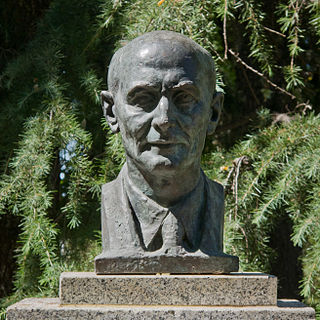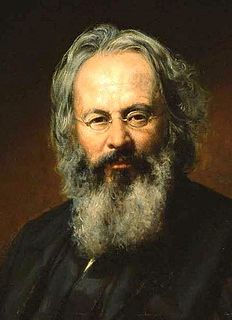A Quote by John Stuart Mill
The struggle between Liberty and Authority is the most conspicuous feature in the portions of history with which we are earliest familiar; particularly in that of Greece, Rome, and England
Related Quotes
The question of whether world peace will ever be possible can only be answered by someone familiar with world history. To be familiar with world history means, however, to know human beings as they have been and always will be. There is a vast difference, which most people will never comprehend, between viewing future history as it will be and viewing it as one might like it to be. Peace is a desire, war is a fact; and history has never paid heed to human desires and ideals.
The gap between ideals and actualities, between dreams and achievements, the gap that can spur strong men to increased exertions, but can break the spirit of others -- this gap is the most conspicuous, continuous land mark in American history. It is conspicuous and continuous not because Americans achieve little, but because they dream grandly. The gap is a standing reproach to Americans; but it marks them off as a special and singularly admirable community among the world's peoples.
The issue of religious liberty is absolutely critical. America was founded on three different types of liberty: political liberty, economic liberty, and religious and civil liberty. It's remarkable that, one-by-one, these strands of liberty are coming under fierce attack from the Left. And that's particularly ironic because "liberal" derives from a word which means "liberty," the free man as opposed to the slave. This liberalism which we're saddled with today isn't a real liberalism at all, but a gangster style of politics masquerading as liberalism.
The Magna Carta is an early reminder of the crucial difference between freedom and liberty. Liberty is freedom that is unique to humans, it is guaranteed by law. All animals are free, but in a system of humans total freedom is anarchy. Humans have thrived by letting a dominant authority regulate freedom. Liberty is a freedom that the authority has granted or has been persuaded to grant. For centuries, the state and the people have negotiated, peacefully and violently.
The two principles referred to are Authority and Liberty, and the names of the two schools of Socialistic thought which fully and unreservedly represent one or the other of them are, respectively, State Socialism and Anarchism. Whoso knows what these two schools want and how they propose to get it understands the Socialistic movement. For, just as it has been said that there is no half-way house between Rome and Reason, so it may be said that there is no half-way house between State Socialism and Anarchism.
If I had to describe my remarks this evening frankly as if I were in police court and on oath, so to speak I should have to call it a ramble over several subjects, portions of which may seem to you to be impudent, and portions of which will be ignorant, and portions of which may contrive to be both at once.
The United States, or the American Republic, has a mission, and is chosen of God for the realization of a great idea. It has been chosen not only to continue the work assigned to Greece and Rome, but to accomplish a greater work than was assigned to either. In art, it will prove false to its mission if it do not rival Greece; and in science and philosophy, if it do not surpass it. In the State, in law, in jurisprudence, it must continue and surpass Rome.









































